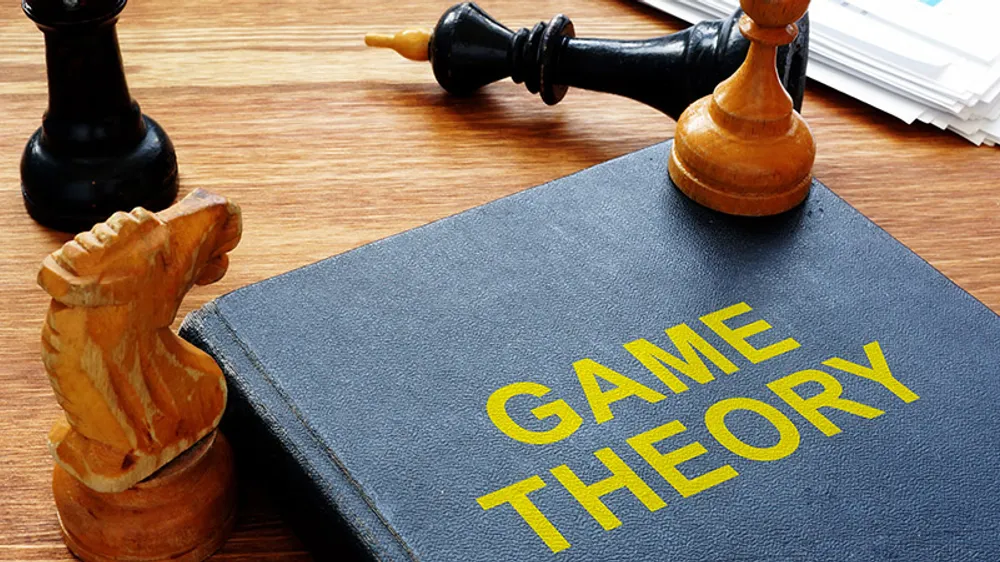
The Transformative Potential of Game Theory in Social Science Education
Could game theory be the key to revolutionizing social science education? Explore how this fascinating mathematical concept is reshaping our understanding of behavior, encouraging collaboration across disciplines, and empowering students to venture into new territories.
In today's changing landscape, incorporating mathematical tools has proven to be a game-changer for the field of social science. One such standout tool is game theory, offering a perspective on comprehending and analyzing phenomena. This opinion piece delves into how tools, like game theory, are paving the way for a revolutionary approach to teaching social sciences. Originating from von Neumann and Morgenstern's groundbreaking 1944 book, "Theory of Games and Economic Behavior", game theory's versatility transcends economics. It finds application in natural sciences, social sciences, and many other disciplines. In particular, it has sparked research in new areas within social sciences and shed light on various aspects of our complex social world.
Could Game Theory hold the key to unraveling the enigmas of life? Renowned Nobel Prize laureate Robert Aumann and his couathor Sergiu Hart, have likened game theory to a "field theory" for the realm of social science. Similarly, Roger Myerson, another Nobel Prize laureate, has compared the discovery of game theoretical equilibrium concept to uncovering the “DNA helix”. These perspectives strongly suggest that Game Theory, which has already revolutionized economics, may now emerge as a tool in the realm of social sciences. Are we on the cusp of a paradigm shift in social science education?
Game Theory: Beyond Board Games
When we think of game theory, it often conjures images of people gathered around a table, engrossed in moves during a board game. While this depiction isn't entirely incorrect, game theory encompasses more than pastimes. It is a discipline that employs models to analyze strategic interactions and decision-making processes while exploring rational human behavior across different scenarios. Incorporating game theory into the realm of social science education would offer students a perspective from which they can explore and grasp the complexities of human behavior. This approach enables individuals to comprehend the reasons behind people's decision-making processes when dealing with competing and collaborative interests.
Real-Life Applications
Game theory is increasingly used to analyze and explain phenomena, such as economics, politics, international relations, and even environmental issues. To truly grasp these dynamics, qualitative analysis is often insufficient; a mathematical approach with precision and rigor becomes necessary.
Take diplomacy as an example—a network of interactions, and negotiations. Game theory helps students break down and comprehend the motives and strategies of nations on the stage. It sheds light on the incentives behind treaties and alliances, making it an invaluable tool for studying relations. In economics, game theory is applied to analyze market behavior, competition dynamics, and pricing strategies. Students can gain an understanding of how firms make decisions within an ever-changing economic landscape.
Enhancing Critical Thinking Skills
One of the benefits of incorporating tools like game theory into social science education is their potential to enhance critical thinking skills. Game theory presents students with the opportunity to think strategically and assess the consequences of their actions and decisions. It encourages them to analyze problems from various perspectives, make predictions, and consider the outcomes of their choices.
By applying models to real-life scenarios, students develop problem-solving skills that are not only valuable in academia but also in their future careers. This approach fosters a level of thinking and equips them with a versatile skill set that can be utilized across different professional domains.
Promoting Collaboration Across Disciplines
The versatility of game theory allows it to bridge gaps between social science disciplines. In our interconnected world, social issues don't neatly fit into academic field boundaries. By incorporating game theory into social science education, we encourage collaboration and a holistic approach to problem-solving.
For instance, understanding social challenges often requires insights from economics, political science, and psychology. Game theory acts as a language that supports communication and cooperation among these fields, leading to more comprehensive and effective solutions for complex problems.
Challenges and Implementation
While the benefits of integrating tools like game theory into social science education are clear, there are still challenges to overcome. One significant hurdle is the intimidation factor associated with mathematics, which may discourage some students. Teachers need to find ways to make the subject interesting and relatable for a range of students. To tackle this, educational institutions can gradually incorporate game theory into their curriculum starting with relatable scenarios and progressing to more complex models. Additionally, using class games and real-life examples can increase student engagement and make the subject matter more relatable.
In summary, the use of tools like game theory is revolutionizing social science education. It equips students with the skills needed to navigate the complexities of behavior and interconnected social issues. By promoting thinking, encouraging collaboration, and offering practical applicability in real-world situations, game theory proves to be a valuable asset for the future of social science education. As we delve deeper into understanding interactions and societal challenges, game theory provides us with a perspective that helps us comprehend, analyze, and ultimately enhance our world.
REFERENCES
Aumann, R. J., & Hart, S. (Eds.). (1992). Handbook of game theory with economic applications (Vol. 2). Elsevier.
von Neumann, J. & Morgenstern, O. (2004). Theory of Games and Economic Behavior. Princeton: Princeton University Press. https://doi.org/10.1515/9781400829460
ONLINE REFERENCES
https://home.uchicago.edu/~rmyerson/research/peraptis.pdf (1.11.2023)

